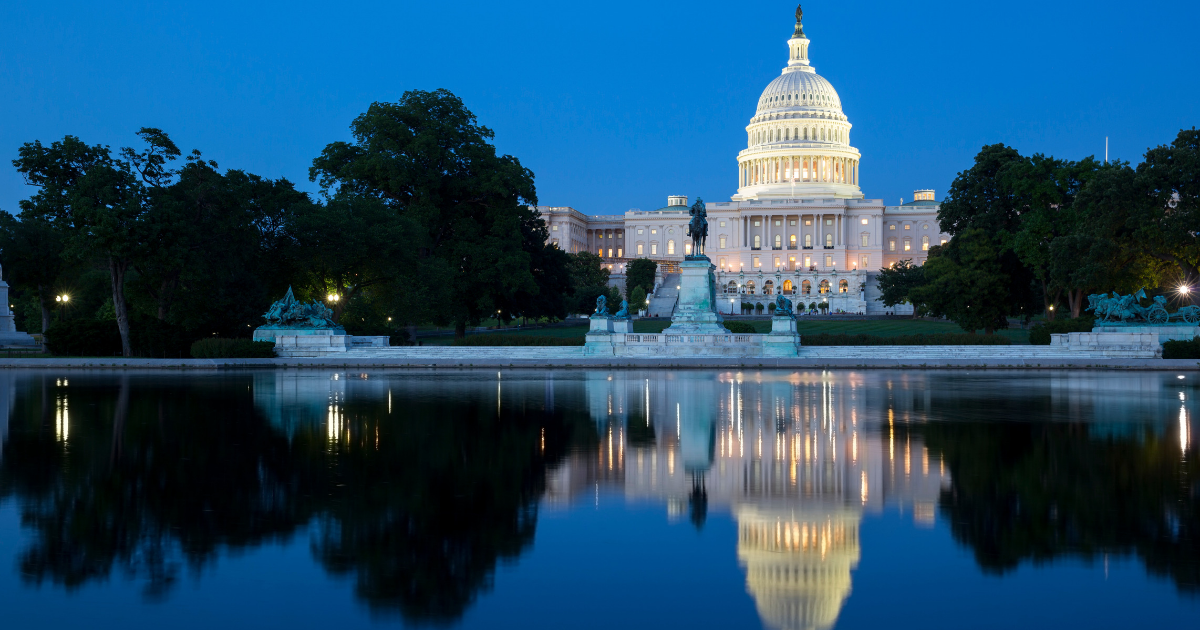- Resources
- Businesses are leading Congress on climate action
Resources
Businesses are leading Congress on climate action
Published: August 7, 2019 by Derek Walker
This article originally appeared in The Environmental Forum.
It is a political reality that Corporate America has tremendous influence in Congress and many companies have used this power to oppose environmental regulations and strong action on climate change. But the activities of the past two months suggest this is starting to change, which is great news given the urgency of the climate crisis. Dozens of leading businesses are finally making climate action the priority it should be, and urging Congress to enact national policies addressing the issue head-on. If this trend continues and accelerates, it will play a huge role in creating the breakthrough moment when lawmakers see ambitious climate action as not only a scientific mandate but a political necessity.
The CEO Climate Dialogue injected new energy into the climate debate on the Hill with Guiding Principles for federal action that were adopted by a diverse coalition of businesses and environmental organizations. The initiative is unique in being CEO-driven and flexible on policy solutions, though the goal to put in place comprehensive federal policy including a price and limit on pollution as soon as possible is steadily gaining momentum. This spring alone, more than 75 businesses advocated for a carbon price on Capitol Hill, major oil and gas and power companies invested in the Americans for Carbon Dividends initiative, and a group of more than 30 oil and gas companies and investors publicly endorsed carbon pricing after a meeting with Pope Francis at the Vatican.
Why the surge in corporate policy advocacy?
For one, Corporate America recognizes the urgency of bending the curve on carbon emissions. In KPMG’s Global CEO Outlook released in May, CEOs across sectors listed environmental/climate risk as the number one threat to growth—ahead of disruptive technology, cyber security and operational risk. As the CEO Climate Dialogue’s Guiding Principles make it clear that “it is urgent that the President and Congress put in place a long-term federal policy as soon as possible to protect against the worst impacts of climate change. Acting sooner rather than later allows us to meet the climate challenge at the least possible cost and put the necessary investments in place in time to meet our emissions targets.”
Second, forward-looking businesses like those in the CEO Climate Dialogue recognize that we cannot achieve the greenhouse gas reductions necessary to avoid the worst impacts of climate change without national scale action and U.S. global leadership. State and local policies play a leading and critical role in driving climate action across the U.S., fostering clean energy and protecting human health, creating jobs and shared economic prosperity, and in establishing frameworks for broader and more ambitious action, yet those policies alone are not enough. The companies’ demands of Congress are clear they are calling for “an economy-wide price on carbon…the best way to use the power of the market to achieve carbon reduction goals, in a simple, coherent and efficient manner.”
Third, companies are under increasing pressure from investors to address climate change. According to the New York Times, a top financial regulator equated the economic risks posed by climate change to those that drove the mortgage meltdown in 2008. Meanwhile, climate-related shareholder resolutions are on the rise, up from 17 in 2013 to more than 75 this year. And while Amazon’s employee shareholder resolution did not pass in May, that won’t be the last time such proposals are introduced at Amazon and other companies.
The case for climate action
 Leading businesses see federal climate policy as something they want to make happen rather than something that will happen to them. They recognize that while voluntary actions by companies and others to cut climate pollution are important and have the laid the groundwork for greater ambition, only public policy can deliver the pace and scale of reductions needed to avoid the worst impacts of climate change. Because these companies understand the unacceptable costs and risks of inaction on climate change, they are leading rather than following Congress on this issue. These companies also recognize that engaging early in the climate policy process allows them to help shape the solutions.
Leading businesses see federal climate policy as something they want to make happen rather than something that will happen to them. They recognize that while voluntary actions by companies and others to cut climate pollution are important and have the laid the groundwork for greater ambition, only public policy can deliver the pace and scale of reductions needed to avoid the worst impacts of climate change. Because these companies understand the unacceptable costs and risks of inaction on climate change, they are leading rather than following Congress on this issue. These companies also recognize that engaging early in the climate policy process allows them to help shape the solutions.
Meanwhile, Americans are increasingly demanding action from their elected leaders. For the first time, voters see climate change as a top priority for the 2020 election. Over 60% of are “alarmed” or “concerned” about climate change, and over 80% support regulating greenhouse gas emissions. While it’s unlikely that meaningful climate policy will pass during the Trump Administration, we need to start the process now of shaping bipartisan legislation that can pass in the future.
The companies in the CEO Climate Dialogue are at the vanguard of a growing movement of businesses calling for climate action in Washington, DC and around the country. They recognize that the most powerful tool they have to fight climate change is their political influence, and they’re not afraid to use it. That’s the kind of leadership that will get us where we need to go: to a bipartisan climate policy solution that boosts the economy, builds resilience and protects public health. Now it’s time for businesses across the economy to join them, and be part of creating the low-carbon future we all want.
Follow Derek on Twitter, @derekbrent
